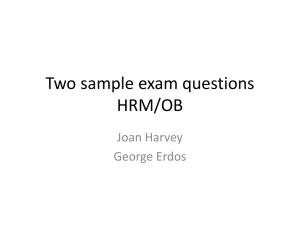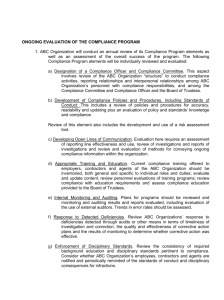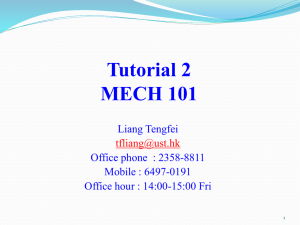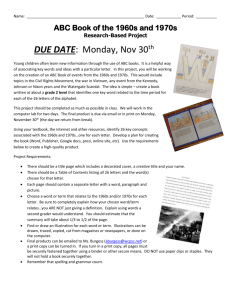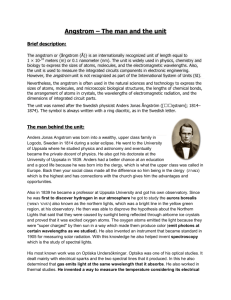Owing_Your_Soul_to_the_Pharmaceutical_Store
advertisement
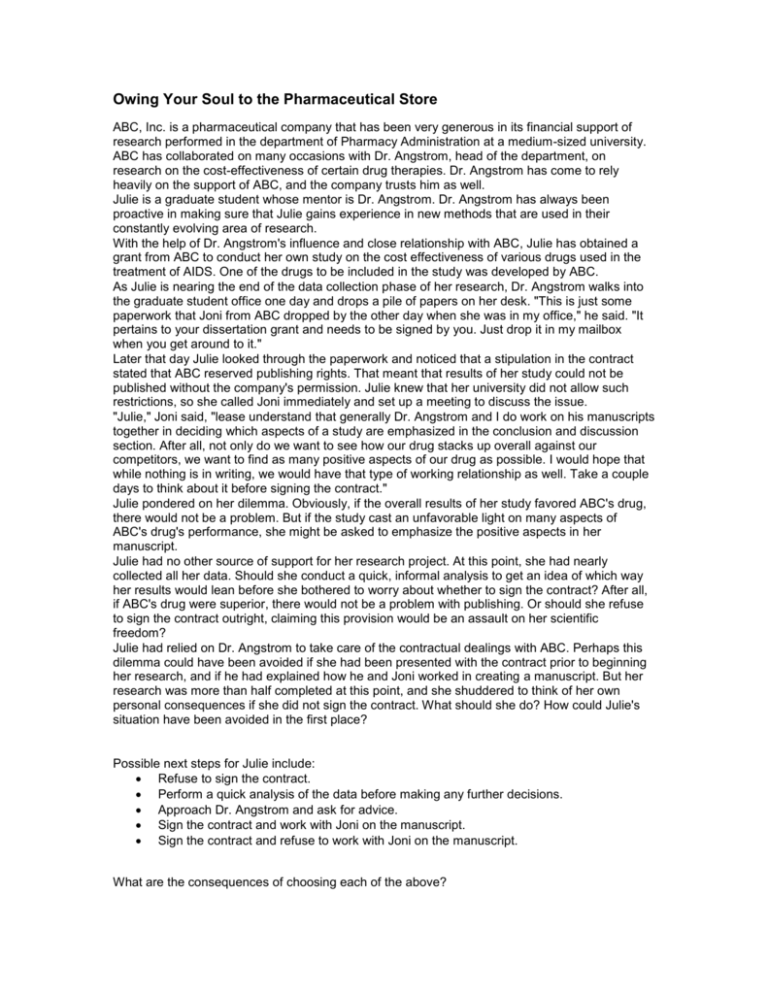
Owing Your Soul to the Pharmaceutical Store ABC, Inc. is a pharmaceutical company that has been very generous in its financial support of research performed in the department of Pharmacy Administration at a medium-sized university. ABC has collaborated on many occasions with Dr. Angstrom, head of the department, on research on the cost-effectiveness of certain drug therapies. Dr. Angstrom has come to rely heavily on the support of ABC, and the company trusts him as well. Julie is a graduate student whose mentor is Dr. Angstrom. Dr. Angstrom has always been proactive in making sure that Julie gains experience in new methods that are used in their constantly evolving area of research. With the help of Dr. Angstrom's influence and close relationship with ABC, Julie has obtained a grant from ABC to conduct her own study on the cost effectiveness of various drugs used in the treatment of AIDS. One of the drugs to be included in the study was developed by ABC. As Julie is nearing the end of the data collection phase of her research, Dr. Angstrom walks into the graduate student office one day and drops a pile of papers on her desk. "This is just some paperwork that Joni from ABC dropped by the other day when she was in my office," he said. "It pertains to your dissertation grant and needs to be signed by you. Just drop it in my mailbox when you get around to it." Later that day Julie looked through the paperwork and noticed that a stipulation in the contract stated that ABC reserved publishing rights. That meant that results of her study could not be published without the company's permission. Julie knew that her university did not allow such restrictions, so she called Joni immediately and set up a meeting to discuss the issue. "Julie," Joni said, "lease understand that generally Dr. Angstrom and I do work on his manuscripts together in deciding which aspects of a study are emphasized in the conclusion and discussion section. After all, not only do we want to see how our drug stacks up overall against our competitors, we want to find as many positive aspects of our drug as possible. I would hope that while nothing is in writing, we would have that type of working relationship as well. Take a couple days to think about it before signing the contract." Julie pondered on her dilemma. Obviously, if the overall results of her study favored ABC's drug, there would not be a problem. But if the study cast an unfavorable light on many aspects of ABC's drug's performance, she might be asked to emphasize the positive aspects in her manuscript. Julie had no other source of support for her research project. At this point, she had nearly collected all her data. Should she conduct a quick, informal analysis to get an idea of which way her results would lean before she bothered to worry about whether to sign the contract? After all, if ABC's drug were superior, there would not be a problem with publishing. Or should she refuse to sign the contract outright, claiming this provision would be an assault on her scientific freedom? Julie had relied on Dr. Angstrom to take care of the contractual dealings with ABC. Perhaps this dilemma could have been avoided if she had been presented with the contract prior to beginning her research, and if he had explained how he and Joni worked in creating a manuscript. But her research was more than half completed at this point, and she shuddered to think of her own personal consequences if she did not sign the contract. What should she do? How could Julie's situation have been avoided in the first place? Possible next steps for Julie include: Refuse to sign the contract. Perform a quick analysis of the data before making any further decisions. Approach Dr. Angstrom and ask for advice. Sign the contract and work with Joni on the manuscript. Sign the contract and refuse to work with Joni on the manuscript. What are the consequences of choosing each of the above?

